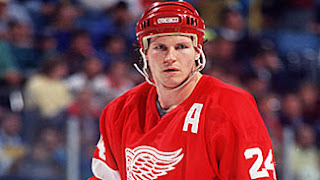 Sidney Crosby can finally play hockey concussion
free, after dealing with headaches for over 2 years. During his long battle
with concussions, many questions surrounded the best player in the game. The
pain began during the 2011 January 1 Winter Classic, when Crosby was blindsided
by a dirty hit from Washington forward David Steckel. Like most young athletes
Crosby rushed his recovery, and re-aggravated his injury with a hit from behind
on January 5 2011. After being evaluated further the Pittsburgh Penguins
announced that Crosby would miss at least a week. At the time of this injury
Crosby was dominating the NHL with 66 points (32 goals, 34 assists) in 41
games.
Sidney Crosby can finally play hockey concussion
free, after dealing with headaches for over 2 years. During his long battle
with concussions, many questions surrounded the best player in the game. The
pain began during the 2011 January 1 Winter Classic, when Crosby was blindsided
by a dirty hit from Washington forward David Steckel. Like most young athletes
Crosby rushed his recovery, and re-aggravated his injury with a hit from behind
on January 5 2011. After being evaluated further the Pittsburgh Penguins
announced that Crosby would miss at least a week. At the time of this injury
Crosby was dominating the NHL with 66 points (32 goals, 34 assists) in 41
games.
Due to
the severity of this injury Crosby had to wait until March 14 just to resume
skating for a 15 minute workout. Shortly after this Crosby suffered a setback
that caused him to miss even more time. After waiting vigilantly and training
hard for his return, Crosby played for nearly a month of the 2011-2012 season
suffering another concussion setback. After this setback the Pittsburgh
Penguins announce that Sidney Crosby is out indefinitely. Following nearly 2
months of mystery, the Penguins and Crosby’s agent announce that he has been
diagnosed with a soft tissue injury in his neck, which is most likely causing
concussion-like symptoms.
Crosby returned early in March and has been
concussion free since. In this case a dynamic and heavily skilled player is
still able to play hockey at a high level, even though he has dealt with
numerous concussions. For the sake of the NHL and fans alike; hopefully Sidney
Crosby can enjoy a long and successful career concussion free.


